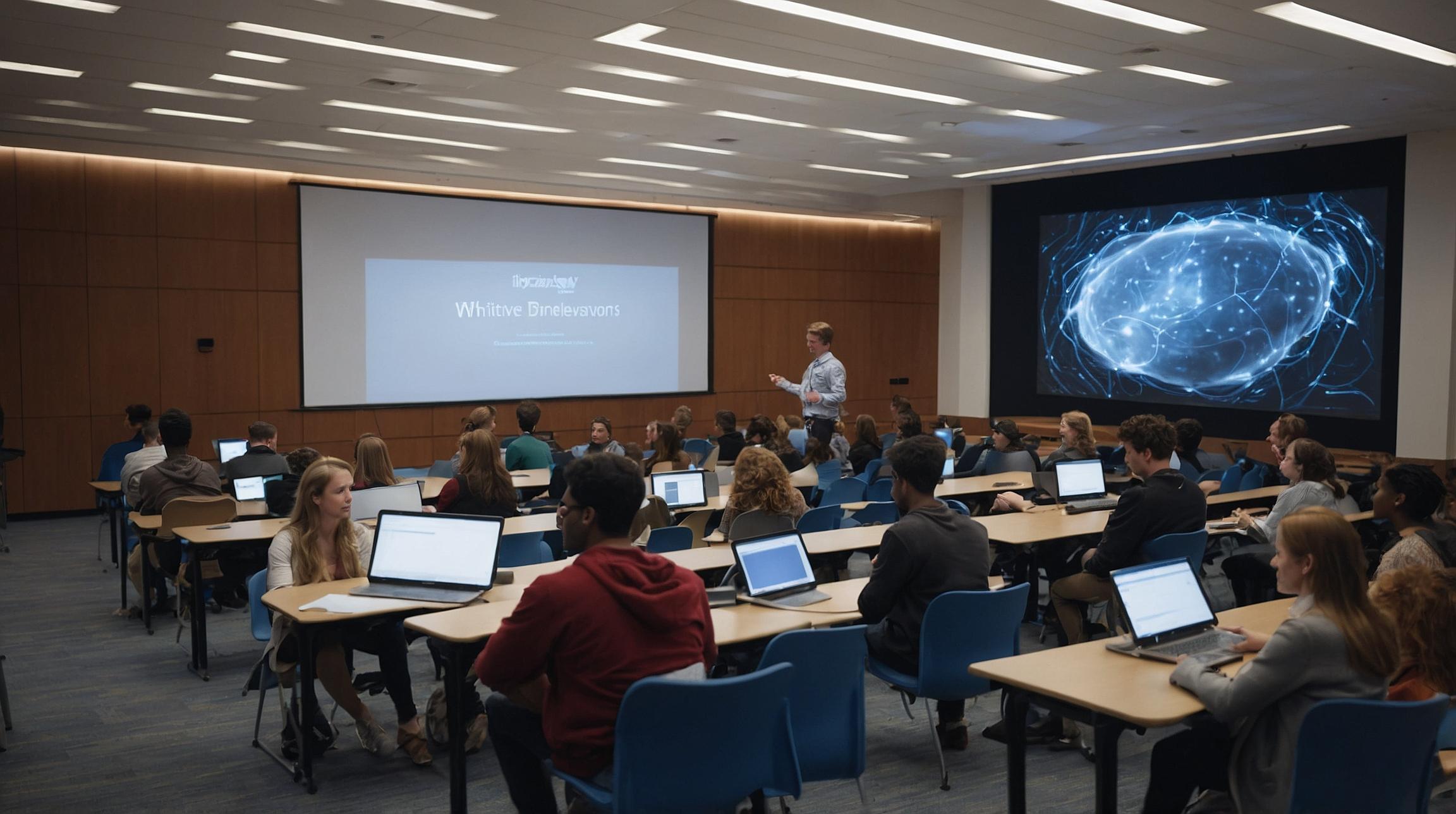University of Delaware Transforms Lectures into AI-Driven Study Aides
The University of Delaware has taken a pioneering step in the realm of educational technology by leveraging artificial intelligence (AI) to convert faculty lectures into interactive study tools. This initiative is in collaboration with Amazon Web Services and marks a significant innovation in how educational content is delivered to students.
Early Adoption and Extensive Repository
The University stands out for its early adoption of technology to record and store lectures. It boasts an impressive repository of over 300,000 videos and text transcripts from participating faculty members. This vast archive serves as the foundation for the AI-driven transformation of educational content.
Pilot Program with Targeted Faculty
The pilot program is initially partnering with Agnes Ly, an associate professor of psychological and brain sciences. Ly's extensive recordings from the past 12 years are being used to create practice quizzes, guides, and outlines. These tools will be tested with students throughout the semester. An additional eight professors from various departments, including geography and marketing, are expected to join the project during the winter session.
Direct Course Content Access
Erin Sicuranza, the director of academic technology services, emphasized the advantage of this approach: “So rather than going out on the internet and finding flashcards on general psychology or borrowing a friend’s notes, it’s directly coming from the content of the course.” This ensures that study materials are accurate and directly relevant to the coursework.
Addressing AI's Challenges and Potential
The initiative comes at a time when educational institutions are grappling with AI's potential and pitfalls. While some fear that students may misuse AI to write papers, others see it as an indispensable tool for the future. According to a Tyton Partners study, nearly half of college students are already using AI tools, whereas less than a quarter of faculty members are doing the same.
Agnes Ly highlighted the importance of responsible AI usage: “We are not going to be able to hold back the flood of AI, but what we can do is teach [students] what it is and how to use it responsibly and also for us to be models of how to use it responsibly.”
Expansion and Collaboration
Other institutions are also exploring AI in education. For instance, the University of Pennsylvania recently announced an undergraduate degree in AI, set to begin in fall 2024. Morehouse College in Atlanta has developed virtual teaching assistants, while Gwynedd Mercy University incorporates AI in assignments to teach students about its accuracy and limitations.
Maintaining Human Oversight
At the University of Delaware, human oversight remains a priority. Jevonia Harris, an educational software engineer, ensures that faculty members like Ly review and approve all AI-generated content. This process guarantees that the study tools are accurate and aligned with the professor's teachings.
Interest from Other Universities
This innovative project has garnered interest from other prestigious institutions, including the University of Texas at Austin, Carnegie Mellon, Notre Dame, Cornell, and the University of Chicago. They participated in a Zoom presentation to learn more about the initiative.
Ethical Considerations and Consent
Sicuranza and Harris stressed the importance of consent and ethical considerations. Recordings and texts are used only from professors who opt-in, and students can access these materials only with permission. The project's ethical framework has been communicated to the board of trustees and the faculty senate.
Future Prospects
While the project is still in its nascent stages, it promises to significantly enhance the learning experience for students. Ly believes that these tools can help students who have questions and need to study outside of class hours. The program's scalability will depend on financial resources and usage metrics.
In conclusion, the University of Delaware’s initiative represents a thoughtful and innovative application of AI in education, setting a precedent for other institutions to follow.













